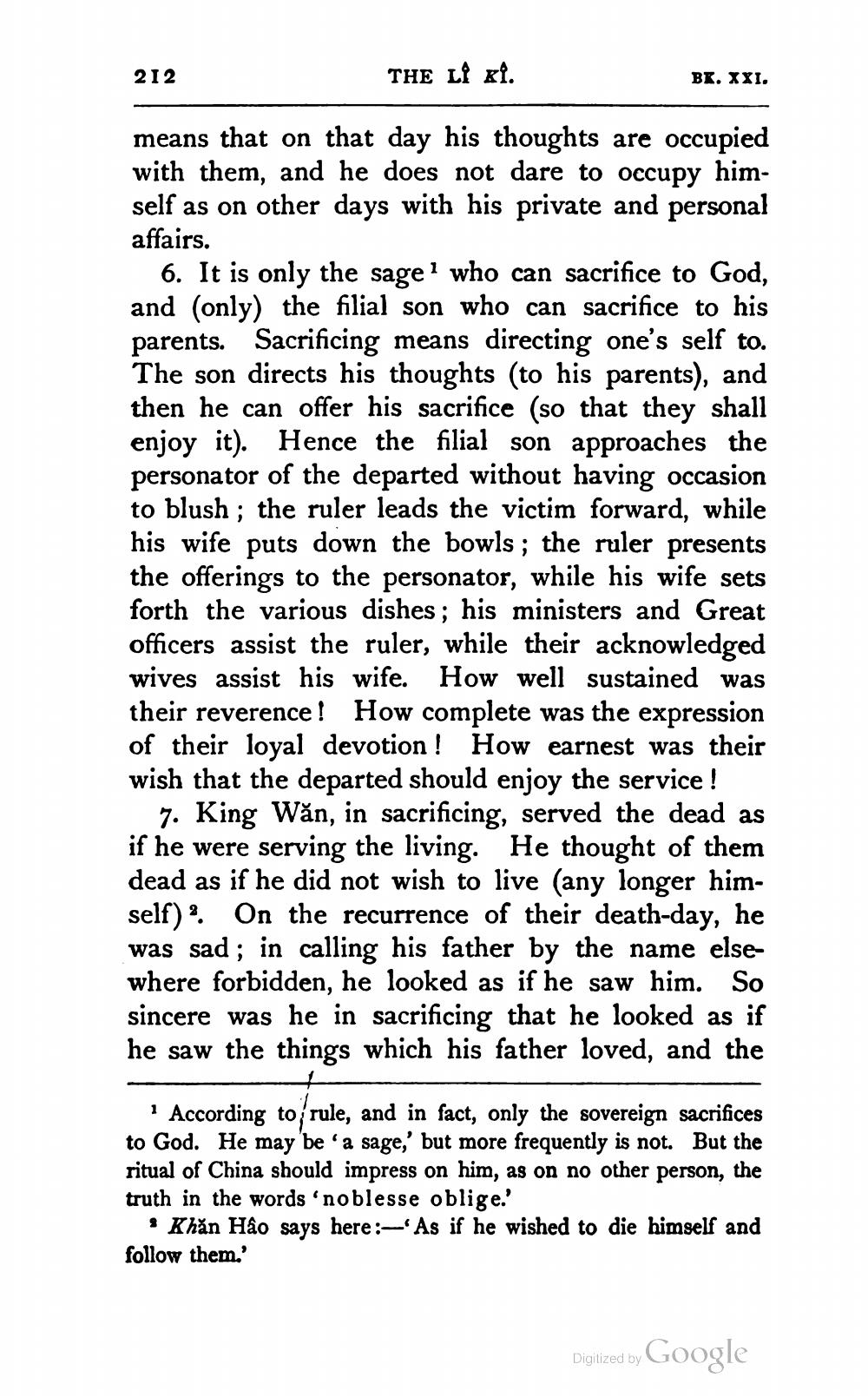________________
212
THE LÎ kt.
BK. XXI.
means that on that day his thoughts are occupied with them, and he does not dare to occupy himself as on other days with his private and personal affairs.
6. It is only the sagewho can sacrifice to God, and (only) the filial son who can sacrifice to his parents. Sacrificing means directing one's self to. The son directs his thoughts (to his parents), and then he can offer his sacrifice (so that they shall enjoy it). Hence the filial son approaches the personator of the departed without having occasion to blush; the ruler leads the victim forward, while his wife puts down the bowls; the ruler presents the offerings to the personator, while his wife sets forth the various dishes; his ministers and Great officers assist the ruler, while their acknowledged wives assist his wife. How well sustained was their reverence! How complete was the expression of their loyal devotion! How earnest was their wish that the departed should enjoy the service!
7. King Wăn, in sacrificing, served the dead as if he were serving the living. He thought of them dead as if he did not wish to live (any longer himself). On the recurrence of their death-day, he was sad ; in calling his father by the name elsewhere forbidden, he looked as if he saw him. So sincere was he in sacrificing that he looked as if he saw the things which his father loved, and the
According to /rule, and in fact, only the sovereign sacrifices to God. He may be a sage,' but more frequently is not. But the ritual of China should impress on him, as on no other person, the truth in the words 'noblesse oblige.'
* Khăn Hảo says here: As if he wished to die himself and follow them.'
Digitized by Google




